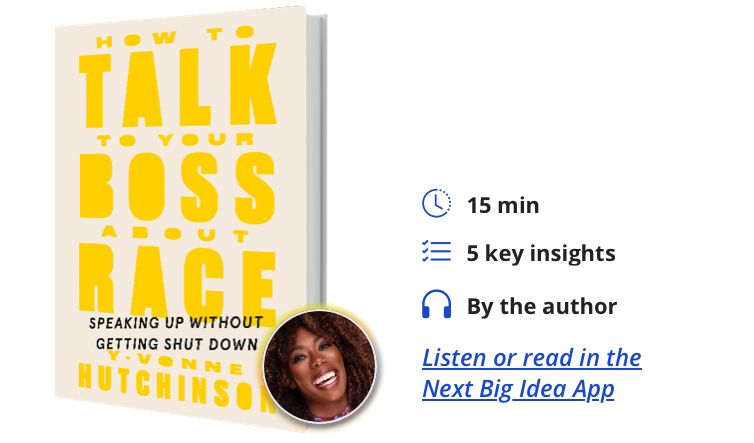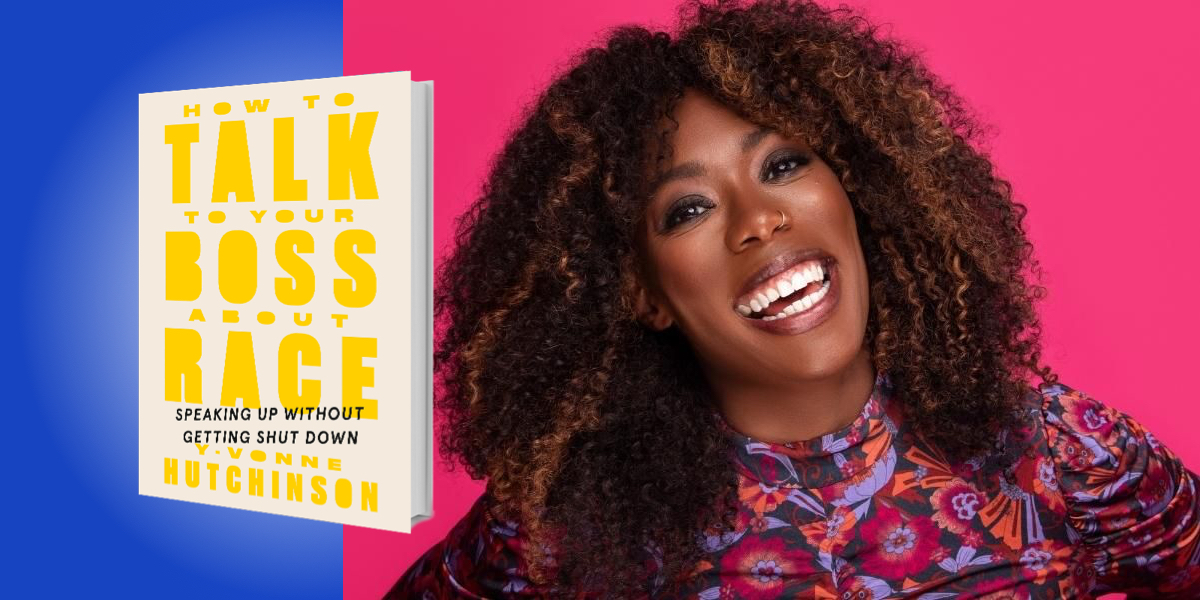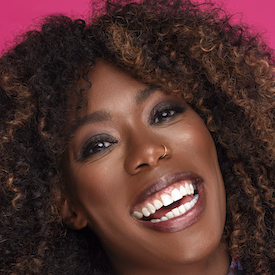Y-Vonne Hutchinson is the CEO and founder of ReadySet, one of the country’s leading diversity, equity, and inclusion consulting firms. Through ReadySet, she partners with Fortune 500 companies, tech firms, universities, government bodies, political leaders, sports teams, and entertainment and media giants to increase representation, reimagine their culture, and optimize their impact. Prior to launching ReadySet, she worked as an international labor and human rights lawyer for nearly a decade.
Below, Y-Vonne shares 5 key insights from her new book, How to Talk to Your Boss About Race: Speaking Up Without Getting Shut Down. Listen to the audio version—read by Y-Vonne herself—in the Next Big Idea App.

1. Start with yourself, but don’t end there.
In my book, I talk about my experiences going into rooms of executives to give them advice. I’m a Black woman, and these executives had paid me to talk to them about racism and sexism. But when I would walk into these rooms, and I’d be with my Black male colleague and my white female colleague, sometimes the executives would ask them questions and listen to their answers, and they would ignore me. There was a part of me that was very offended by this.
But there was also a part of me that knew I had to unpack my identities and figure out what messages they heard and who they heard these messages from in order to get through to them. So I always say, “Know yourself, so that you can more effectively advocate on behalf of somebody else.” You need to understand your identity, your power, and your position, so that you can leverage those things for someone else’s benefit. You also need to unpack your privilege, understanding what tools you have at your disposal and also what you’ve been prevented from seeing during the course of your life.
As part of this self-exploration, I always recommend going after what makes you uncomfortable. There are often a lot of lessons in our discomfort. I had to come to terms with my Blackness, and understand how it impacts how other people hear me. But I also had to get real with myself about the privileges I’ve had, and how that may affect my understanding of the Black experience and my lack of understanding for other experiences.
Indeed, you want to maintain humility throughout this process, and use a growth mindset. We’re all learning. When you’re having a conversation about cultural change or somebody’s discriminatory practices, understand that no one has gotten this right yet. No one is perfect. That’s not to say that we absolve people of accountability, but we have to understand that there’s growth that we can do, and we can model that for others. So start with yourself, but don’t end there.
“Know yourself, so that you can more effectively advocate on behalf of somebody else.”
2. Find community, find your friends.
When I turned 30, I forgot how to make friends. I feel like a lot of people go through that experience—we forget that we need other people, and we forget how to track those other people. At the same time, we’re also taught that social change is driven by individuals. Reflect back on those lessons that you learned in your history books: the Civil Rights Movement was supposedly driven by just Martin Luther King, Rosa Parks, Malcolm X, and maybe a few others. But that’s not true. Effective social change movements, whether they’ve been for civil rights, women’s rights, or labor rights, happened with collective action. They’ve happened because there’s a whole machine in place that’s pushing for these changes.
I can’t emphasize enough how important it is for you to undertake this work as part of a community. Acting in community makes us better advocates—it helps us see what we may miss, it enables us to build off the work of others, and it supplements our understanding with knowledge we may not have. And when we’re not the sole person sticking out and demanding change, we’re less vulnerable to retaliation. So, act in community. Don’t go at this alone.
3. Get strategic.
The Freedom Summer was a 1964 campaign that tried to get Black voters registered in Mississippi. And organizers engaged with white university students, busing them down with Black students to register people to vote in the Deep South. Some of those students didn’t make it out alive, but the ones who did wrote to their parents—they told them what they had seen, and converted their parents to their cause. The parents became passionate advocates themselves, and they then engaged their communities and elected officials. Ultimately, it was one of the most successful civil rights campaigns in modern history.
“It’s tempting to think that the fight for equality is innate, like we’re trying to go back to some kind of normal. But in reality, that normal has never existed.”
But it was strategic—it wasn’t something that came intuitively. There was a strategy for, how do we win over this key constituency, to push our civil rights agenda forward? It’s tempting to think that the fight for equality is innate, like we’re trying to go back to some kind of normal. But in reality, that normal has never existed, and we’re not brought up knowing how to create inequitable systems. We’re raised in inequity, so quite the opposite is true. In fact, there are people who don’t want us to succeed. So in order to navigate the opposition we may face, strategy is really important.
4. Keep showing up.
It’s easy to say that, but hard to do—and it can feel heavy. Whether we’re allies or we belong to groups that are being discriminated against, when we’re doing this culture-change work, it can feel really daunting, and it’s so easy to get exhausted. It can also feel lonely, even if we have that community that I mentioned earlier.
So it’s important to remember that we’re not going to get there overnight. This is a process, and the process is contingent on us showing up, maintaining our presence, pushing forward, being that drip, drip, drip of water that eventually erodes the soil and becomes the Grand Canyon. You’ve got to keep showing up.
5. Take care of yourself.
I heard this quote that really resonated with me. I’ll be honest, I heard it on 90 Day Fiancé, but it’s still quite inspirational: “You can’t pour into someone else’s cup if your cup is empty.” In other words, you can’t give if you have nothing to give. I think about this a lot with our work; we have to take care of ourselves, too.
“You can’t pour into someone else’s cup if your cup is empty.”
Every morning after my husband drops our kid off at daycare, I go for a long walk with my dog and do a quick meditation. This may seem like a luxury, but it’s really become critical for me. It lifts me up. It stabilizes my mood. It gets me out of my head. It centers me. It’s that little piece of alone time that I get as a working mother, and those things are so important and sustaining—especially when times get tough. Before our daughter was born, I had pregnancy complications. I signed the book deal when I had already gone on bedrest in my ninth month of pregnancy, and I started writing it then. My father was diagnosed with cancer. I then lost another close family member—and I was raising a newborn, running a company, and navigating the realities of COVID.
Through all of that, I had to figure out, “how do I do this emotionally exhausting work in a sustainable way and not lose myself?” And so for me, self-care became really important. And self-care is not just bubble baths; it’s about doing the things that fill your cup.
The process of writing this book was a process of opening up my wounds, digging around in them for a lesson, pulling that out, and then trying to stitch them back up again to get closure. I think this happens to anyone doing this advocacy work, particularly if you are a member of the group that you’re advocating on behalf of. So for us to show up sustainably, we have to set boundaries, create space for healing, and remove ourselves from the things that truly endanger us. So take care of yourself, especially now. Be kind to yourself, center yourself, and set those boundaries so that you can live to fight another day.
To listen to the audio version read by author Y-Vonne Hutchinson, download the Next Big Idea App today:
































